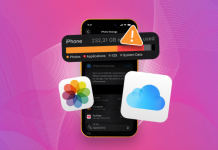People with developer accounts have been able to backup music, books, photos, device settings, app data, and a bunch of other stuff to iCloud while they’ve been testing the new iOS release. As always, Apple’s been pretty good about giving developers the tools they need to make sure their apps are working properly with the operating system release prior to it going public.
If the rumors are to be believed, then iOS 5 should be released around the same time as the new iPhone. On September 22nd, Apple is allegedly reseting the iCloud backups you’ve set up with your beta devices. According to 9to5Mac and a posting on the developer forums, iCloud backups will be unavailable between 9am PDT – 5 PM PDT on the 22nd. Users will be sent an alert indicating that backups were unsuccessful should they attempt a restore from a previously conducted backup.
On Thursday, September 22, the iCloud Backup data will be reset. Backing up to iCloud or restoring from an iCloud backup will be unavailable from 9 AM PDT – 5 PM PDT. If you attempt a backup or restore during this time, you will receive an alert that the backup or restore was not successful.
Backups also won’t be compatible with their pre September 22nd states, and an automatic backup will be conducted once the system comes back online the evening of the 22nd. Again, this only matters if you currently have a developer account, and you’ve been using iCloud. Most people won’t be affected by this, nor should they pay much attention.
Perhaps the most importantly tidbit of information from the original post is the date. If Apple’s getting ready to both release iOS 5 and announce the next generation iPhone, the week of September 22 is something we should keep in mind. It could very well be the week we see both releases.
9to5Mac is pretty confident that the next iPhone will be announced at the end of September and available for purchase during the first week of October. I guess for now the only thing we can do is wait and see, and maybe even cross our fingers and toes a little bit too.
Source: 9to5Mac






